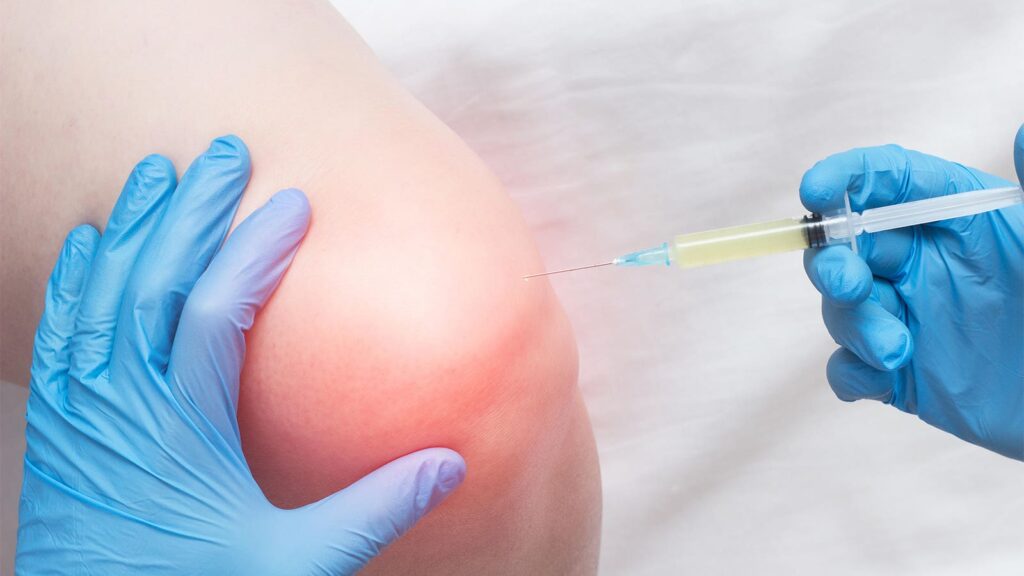Three Georgia companies and their principals have been banned from continuing their “bogus claims” that their stem cell therapy could treat arthritis, joint pain, neuropathy, and many other ailments, the Federal Trade Commission and the Georgia Attorney General’s Office announced.
They were ordered to pay a total of $5.155 million in civil penalties and in refunds to defrauded consumers, most of them elderly or disabled.
Defendants also made false or unsubstantiated claims that their stem cell treatments are comparable or superior to surgery, steroid injections, and painkillers, and falsely claimed their treatments were approved by the FTC and the FDA, according to federal and state documents.
The case centers on the Stem Cell Institute of America (SCIA) and its network of companies, along with co-founders Steven Peyroux and Brent Detelich.
According to the complaint, Peyroux, a chiropractor, and Detelich, a former chiropractor, co-founded SCIA in 2015. They trained healthcare professionals, including chiropractors, “how to deceptively market their unproven stem cell therapy and hosted free seminars and consultations, which were full of baseless claims. Individuals — most of them seniors and/or people with disabilities — were charged up to $5,000 per injection, and many received more than one.”
The defendants formed companies that advised “chiropractors and other healthcare practitioners on expanding their business model and increasing revenue,” the complaint stated. SCIA “instructed chiropractors and other healthcare practitioners to expand their health offerings but focused exclusively on stem cell therapy … [and] provided clients with the appearance of being part of a large nationwide healthcare network under the SCIA name and logo,” according to the complaint.
“Defendants charged clients a monthly fee, ranging from $1,500 to $5,500 for an ‘exclusivity radius’ within which SCIA would not train any other provider or allow them to use the SCIA name and logo. Alternatively, SCIA charged a flat fee of $400 for each injection administered by its clients,” the complaint stated.
After years of filings beginning in 2021, the U.S. District Court for the Northern District of Georgia issued a summary judgment opinion and order against the defendants in March 2024.
On Dec. 26, the Georgia court issued orders for injunctive and monetary relief.
The first order bans the defendants from advertising, marketing, promoting, or selling any regenerative medicine treatments, including any treatment or therapy that falls under the definition of stem cell therapy. The second orders the defendants to pay back $3.3 million to 485 customers and $1.845 million in civil penalties.
Paul Knoepfler, PhD, is a stem cell expert at the University of California Davis whose blog in The Niche tracks scientific developments in stem cell research as well as misinformation and treatment scams advertised by clinics around the country.
In an interview with MedPage Today, Knoepfler applauded the FTC’s and Georgia’s persistence against the defendants, but he said similar legal actions against fraudulent stem cell clinics are too few and too far between.
“Overall, the feds have not been very effective except in 2024,” he said. “That year, the FDA’s CBER [Center for Biologics Evaluation and Research] issued 12 warning letters to different stem cell firms, though in a typical year it might be just a few over the last 14 years.”
There have been several court decisions, however, that have tackled stem cell clinic claims, such as one last October which ruled that a type of stem cell therapy processed partially from fat — called stromal vascular fraction — is in fact a drug, and not exempt from FDA authority.
But that’s not that much activity when the number of stem cell clinics has “exploded” in recent years to nearly 2,000 across the country, Knoepfler said. “They have TV ads … and can afford more advertising, so at least in Georgia, they did something about it.”
Only about five other states have attorneys general that pursued investigations or cases, he said. They are Arkansas, North Dakota, Iowa, Nebraska, and New York, where state attorney general Letitia James got a similar $5.1 million judgment against now-defunct Park Avenue Stem Cell and its managing doctor, Joel B. Singer, MD.
Something to keep in mind, Knoepfler said, is that the harm to patients and consumers who are duped by such false and misleading claims is not always just economic.
“Even if an injection does not give you an infection, it can raise false hopes, and sometimes people who get stem cells may stop their traditional medicine that does work, thinking the stem cells will just fix everything because of marketing,” Knoepfler said.
“There definitely has been a lot of harm related to these clinics,” he continued, although he emphasized that he was unaware of any specific allegations of medical or physical harm in the case against the Georgia clinics and their owners.
While the FDA of late has publicized its intent to obtain more consumer and patient reports of misleading stem cell clinic claims and treatments, Knoepfler is concerned that effort may not last with the incoming administration.
He noted that President-elect Trump’s nominee for Health and Human Services Secretary, Robert F. Kennedy Jr., “has called out stem cell clinics specifically and claimed the FDA was suppressing stem cells somehow … and that could make it harder for the FDA.”
RFK Jr. has posted on social media that he intends to end the FDA’s war on public health, including stem cells.
“If Washington is hostile for the FDA to keep on these clinics, we really need the state AGs to do more,” Knoepfler said.
Please enable JavaScript to view the comments powered by Disqus.
Source link : https://www.medpagetoday.com/special-reports/features/113727
Author :
Publish date : 2025-01-10 16:50:09
Copyright for syndicated content belongs to the linked Source.
